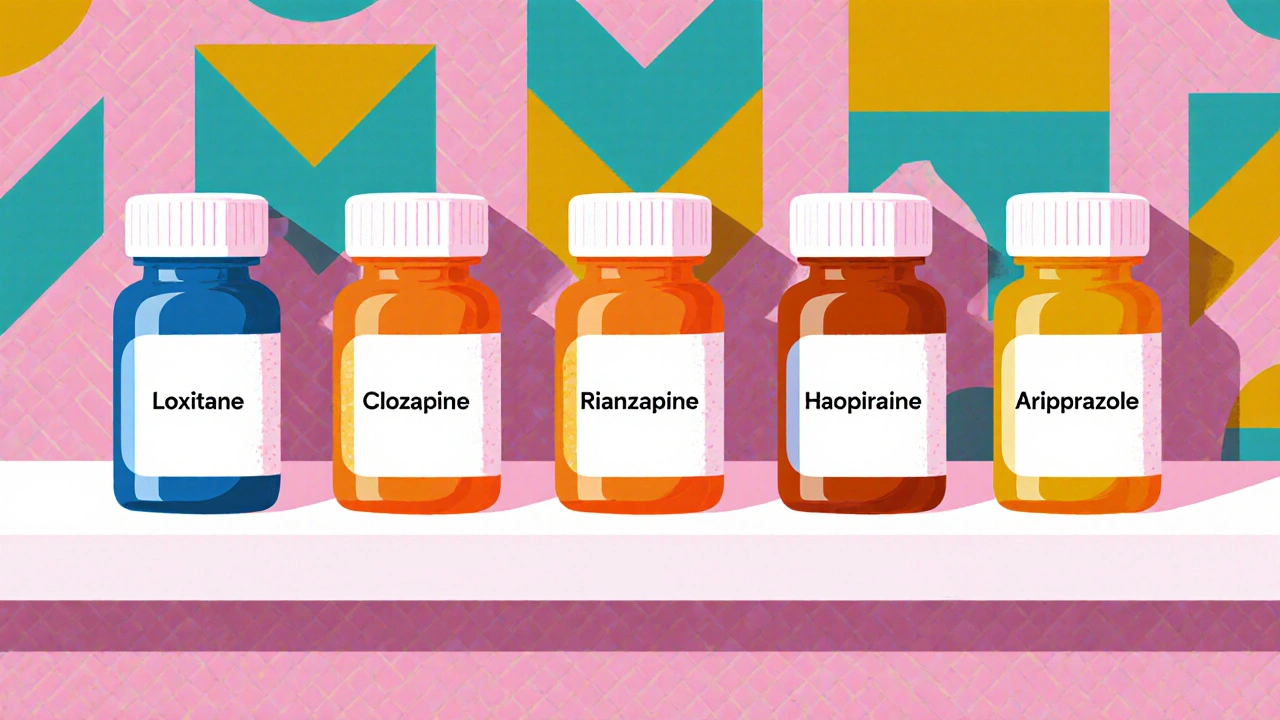Schizophrenia treatment: practical options, meds and everyday tips
About 1% of people worldwide will experience schizophrenia in their lifetime. This condition changes thinking, feeling, and motivation, but treatment can reduce symptoms and help people live workable lives.
Treatment goals are clear: lower psychotic symptoms, prevent relapses, improve daily functioning, and support social and work skills. Most people need a mix of medication and psychosocial support rather than either alone.
Antipsychotic medicines are the mainstay for controlling hallucinations, delusions, and disorganized thinking. There are two broad groups: first-generation (older) antipsychotics and second-generation (atypical) antipsychotics. Atypical drugs like risperidone, olanzapine, quetiapine, and aripiprazole are commonly used because they balance symptom relief and side effect risks. Clozapine works best for treatment-resistant cases but needs blood monitoring for safety. Long-acting injectable antipsychotics give steady medication levels and can help people who struggle with daily pills.
Nonmedication supports matter just as much. Cognitive behavioral therapy for psychosis (CBTp) can reduce distress from symptoms and improve coping. Family therapy reduces relapse and improves communication when families learn to spot early warning signs. Supported employment and skills training help people return to work and keep routines that protect mental health. Early intervention services for first-episode psychosis usually combine meds, therapy, and case management and give better long-term outcomes.
Side effects are common and need active management. Weight gain, diabetes risk, sedation, and movement problems need monitoring and simple fixes like diet changes or dose adjustments. Talk openly with your prescriber about sexual side effects or drowsiness so you can try alternatives or add treatments.
Medication choices and what to expect
Most medicines take two to six weeks to reduce positive symptoms, and full benefit for negative symptoms may take months. If a drug does not work or side effects are bad, switching or trying clozapine for resistant illness are common next steps. Long-acting injectables come in monthly or multi-month forms and cut the need for daily pills.
Daily habits that help recovery
Small daily habits stack up: keep sleep regular, eat balanced meals, avoid alcohol and recreational drugs, and keep social contact. Use reminders, pill boxes, or phone alarms if you struggle with medication routines. Peer support and local services give practical help with housing, benefits, and staying active.
Watch for warning signs like worsening sleep, increased withdrawal, louder paranoia, or new self-harm thoughts and get help early. If someone is a danger to themselves or others, emergency services or a crisis team should be contacted right away. Practical tip: keep copies of your medication plan and a simple list of emergency contacts in your phone and in writing. Recovery often looks like steady small steps more than sudden fixes. Reach out to a psychiatrist, community mental health team, or a trusted GP to build a plan that fits your life.
Only use pharmacies approved by your country’s regulators, confirm prescriptions before buying, and talk to your prescriber if you consider ordering medication online—some antipsychotic and mood-stabilizing medicines require monitoring and tests that online sellers may not provide for safety, effective medical care, and follow-up.
Loxitane (Loxapine Succinate) vs Other Antipsychotics: Full Comparison
A detailed side‑by‑side comparison of Loxitane (loxapine succinate) with six major antipsychotic alternatives, covering efficacy, side effects, dosing, cost and when to choose each.
Solian: Uses, Effects, and Key Facts About Amisulpride
Discover what Solian (Amisulpride) is, how it works for schizophrenia treatment, real side effects, and critical tips you won’t find on the leaflet.
© 2026. All rights reserved.


